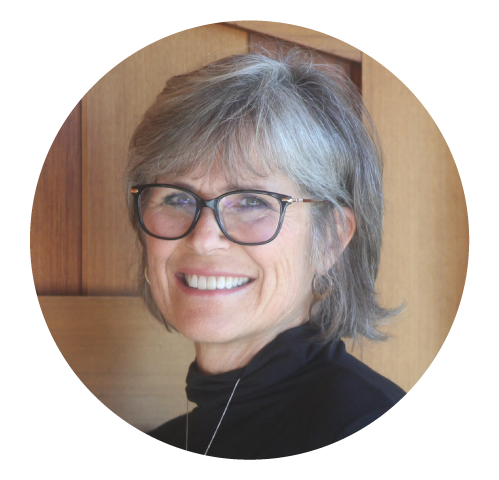It’s Poetry Friday!
Heidi at my juicy little universe
will have lots of food for thought to carry you into your weekend.
Below is my poem for this week’s NEVERMORES poetry prompt.


OBITUARY
by Patricia J. Franz
my naïveté died
lingered longer
than it should
nurtured by
suburban dreams
harmless lies
happily-ever-after times
fed white-washed lines
why?
didn’t know, wasn’t told
protected from pain, mine
or someone else’s
I dared tread
on storied land
a vastness
I could never understand
bent my ear to
whispered souls, sold
a narrative
distorted sins
lives rewritten
my naivete died, yet
unforgiven
I spent part of the weekend within Saguaro National Park.
The contemporary native peoples whose history is bound to this land include: Akimel O’odham (also known as Pima), Apache, Hopi, Maricopa, Yaqui, Tohono O’odham (“Desert People”), Yavapai, and Zuni.
Sadly, the signage and printed materials do not include their voices or their stories.
The history of how tribal lands became part of the national park system is a painful and complicated one.
To begin only from the time these lands were set aside “for the enjoyment, education, and inspiration of this and future generations” is a disservice to the very values we wish to impart.


 Patricia Franz writes picture books and poetry. She believes children, dogs, and sourdough have a lot to teach us about life, joy, and wonder. She has raised two boys, four dogs, and holds a master’s degree in Theology with a focus on children’s spirituality. Patricia, her husband, her Bernese Mountain dog, Bonny, and her sourdough starter split their time between the Arizona desert and the Sierra Nevada mountains.
Patricia Franz writes picture books and poetry. She believes children, dogs, and sourdough have a lot to teach us about life, joy, and wonder. She has raised two boys, four dogs, and holds a master’s degree in Theology with a focus on children’s spirituality. Patricia, her husband, her Bernese Mountain dog, Bonny, and her sourdough starter split their time between the Arizona desert and the Sierra Nevada mountains. 
I did not know and had not thought much about the origin of NPS lands–thanks for helping kill off my naivite, too!
I suppose it is both a blessing and a curse. But going forward, I try always now to consider who walked here before.
Patricia, wow, I didn’t know this either. Your poem was powerful from the first reading, and continues getting better with each additional reading. Some of the most impactful lines:
[naïveté] lingered longer / than it should
fed white-washed lines
protected from pain
I dared tread / on storied land
distorted sins / lives rewritten
And once you know, hopefully you integrate it into some aspect of your own understanding.
Patricia, your poem is indeed powerful.I am so glad that you shared not only your poem but a bit on the backstory: “The history of how tribal lands became part of the national park system is a painful and complicated one.” It is sad that nature had to be in a tug of war with history.
The conflict is vaguely familiar when we consider big, unresolvable (?) issues within families – conflicts that have their origins in events we were never a part of. Still, we need to at least acknowledge them and walk tenderly.
The older I get…the more I learn about the death of my naiveté. I always thought of our National Parks as “treasure.” They are…just not ours to take or give. Thank you for putting a feeling I couldn’t name into words. I long for forgiveness for the sins of the past.
You put it well, Linda – treasures that were not ours to take or give. So now what, I ask myself?
Ah yes, those “white-washed lines.” I’ve only recently come to begin to understand the history of tribal lands in the area where I now live. Thank you for naming the tribes specifically and acknowledging their sacrifice. Recently the programs at the Highlights Foundation begin with an acknowledgement of the indigenous people who once inhabited the land. Perhaps it’s a start.
It is a start, Rose. Naming, acknowledging, at least lifts up the conflict and tension surrounding the history. What we choose to do going forward is still to be seen.
Thank you for this, Patricia. Many of the storytimes I do here in MN begin with the host acknowledging the land and its original caretakers. It’s hard when we finally learn the history of things we cherish–or use without much thought at all. Hard to see them blemished with blood. But important.
Yes, it is a start.
I just commented on your poem on the Nevermores. I so appreciate you sharing your heart in this poem and those gut-wrenching feelings when we find out how naive we’ve been.
Nothing harder than letting go of fantasies!
Patricia, that is a powerful poem. At a fair once I asked a rep of a local historical society about the indigenous people who lived in this area (my own naivete speaking loudly), and he said, “I don’t know. Why, do you want to bring in a casino, hahaha.” There is much to learn for so many of us. New England history didn’t begin with the Pilgrims’ arrival!
I’m not sure I grasp the historian’s response…but I can tell you understand the conflict. Timelines and history are tricky. Always a slant based on who tells the story.
My students and I learned of this tragedy years ago, Patricia. We visited Saguaro National Park and spent a few days with the Tohono O’odham people, learning about their history and their lives today. I know they would love your poem, will share with one adult who was with me on that trip.
Oh Linda! I would love to connect with anyone who can expand my understanding of the first people’s experience. If you do share the poem, would you perhaps ask if they might be willing to let me contact them? (I’m going to send you this response via email too, in case you don’t circle back to this post).
I love how the first image – the thorns – sets up the obituary in your poem, Patricia!
Thank you, Anastasia.
So provocative, an obituary to one’s naïveté. Wonderful poem, a sad and important one. Thanks for sharing it, Patricia.
Naivete is one of those pesky things that is really hard to kill, too.
Thank you for ‘bending your ear’ to “whispered souls, sold
a narrative”, Patricia. Your obituary plays on many levels.
Thank you for reading it, Bridget.
It’s important for us to acknowledge our own learning, and hard to do because unlearning and relearning can be painful and messy. Your poem does this gracefully and reminds us all of the journeys we’re still on to open to hard truths. We have to “tread on storied lands,” gently.
I have a lot of relearning to do… good thing I’m retired!
Oh, this is so beautiful and spot on for many of us. Viewing the things we were taught when we were young through a wider, sharper, all-encompassing lens. It will kill naivete, for certain, but gives birth to so much more.
I like thinking of it that way, Karen. An obituary for rebirth.
I loved this prompt from Lisa Vihos and your response is so thought-provoking, Patricia. My favorite stanza is:
I dared tread
on storied land
a vastness
I could never understand
Thank you, Laura. Yes, it was a thought-filled prompt.